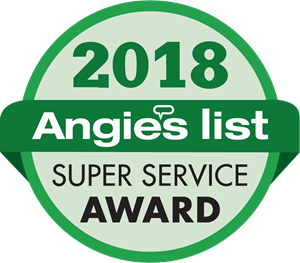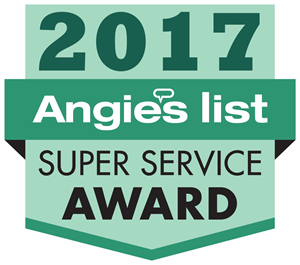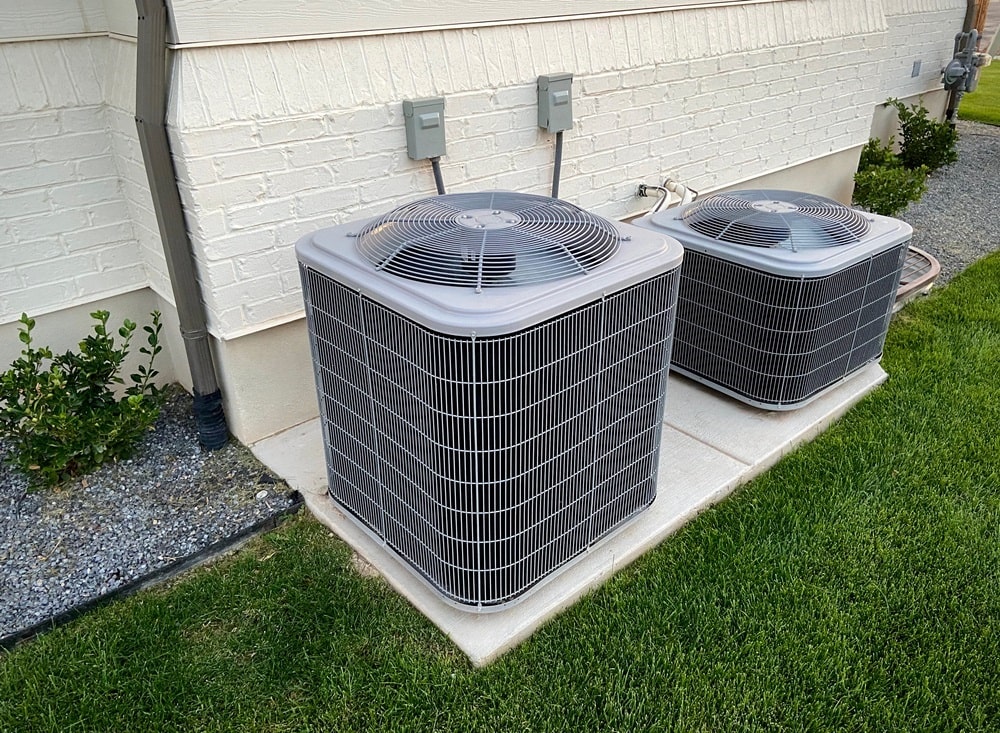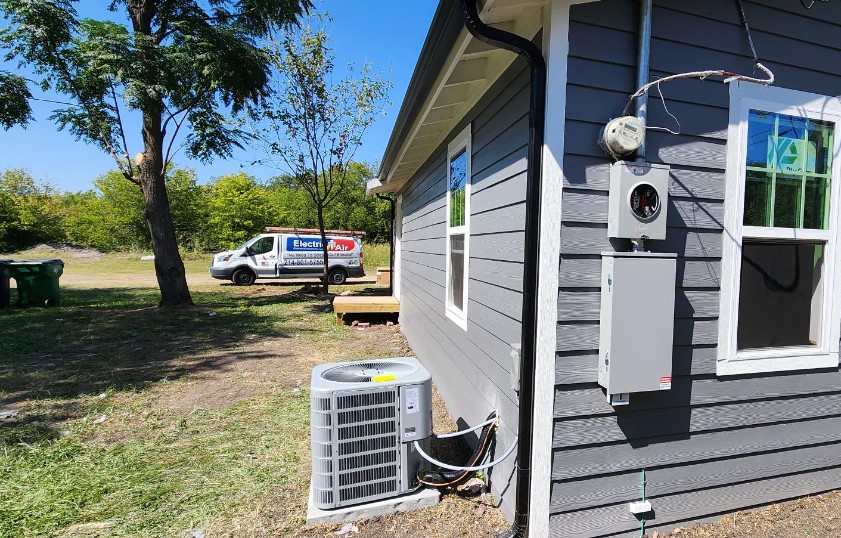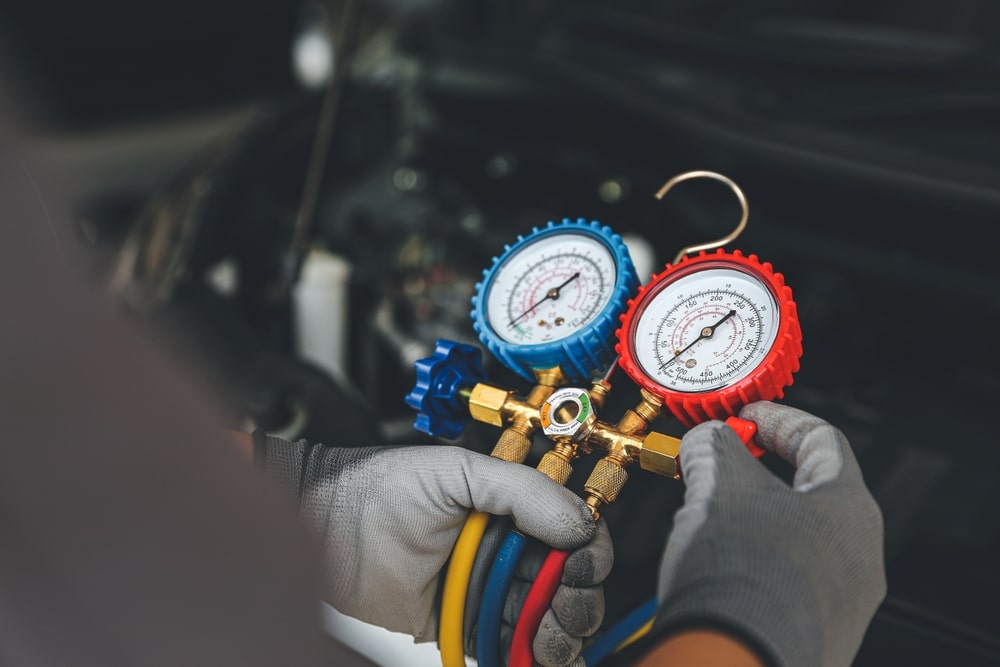
Common Types of HVAC
Based on our experience as the leading Irving HVAC service provider, know about the different types of HVAC (heating, ventilation, and air conditioning) systems. And we can tell you that each of them has its set of advantages and disadvantages. Some of the most common types include the following.
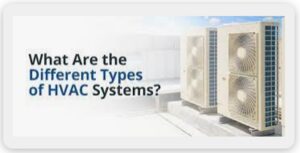
Central Air Conditioning:
This type of system is the most common in homes and buildings. It consists of a central unit, typically located in a basement or attic, that cools and dehumidifies the air, which is then distributed through a system of ducts. Central air conditioning is efficient and can cool a large area, but it requires ductwork to be installed, which can be costly.
Advantages
- Efficient cooling: Central air conditioning systems can cool large areas effectively and quickly.
- Whole-house cooling: A central air conditioning system can cool the entire house, rather than just one room or area.
- Better air quality: It can help to improve indoor air quality by removing pollutants and allergens from the air.
- Low maintenance: Central air conditioning systems have relatively low maintenance and only require occasional service and filter changes.
- Versatility: The system can be integrated with other systems such as furnaces or heat pumps to provide heating as well as cooling.
Disadvantages
- High installation costs: Installing central air conditioning can be costly, as it requires the installation of ductwork throughout the house.
- Reduced energy efficiency: If the ductwork is not properly sealed and insulated, it can lead to leaks and drafts, which can decrease the system’s energy efficiency.
- Noise: Central air conditioning units can be noisy and can be disruptive, particularly if they are located in a bedroom or living area.
- Limited control: With central air conditioning, it is difficult to control the temperature in different rooms or zones within the house, as the temperature is controlled by a single thermostat.
- Dependence on electricity: The system requires a significant amount of electricity to operate, which can be a problem during power outages.
Central air conditioning can be a great option for many homes, but it’s important to weigh the pros and cons before making a decision. It’s also important to consider the location, climate, and architectural layout of the building as well as your budget before deciding on a specific type of HVAC system. And you can contact our Irving HVAC team for professional advice.
Ductless Mini-Splits:
This type of system does not require ductwork and instead, consists of an outdoor unit that is connected to one or more indoor units, typically installed in individual rooms or zones. They are easy to install and are more energy-efficient than central air conditioning. It also provides greater control over the temperature in individual rooms and zones.
Advantages
- Energy efficiency: Ductless mini-splits are highly energy efficient and can help to reduce energy costs.
- Easy to install: Ductless mini-splits do not require the installation of ductwork, which makes them less invasive and less costly to install than central air conditioning systems.
- Zone control: These units allow for greater control over the temperature in individual rooms or zones within a home or building.
- Improved air quality: Ductless mini-splits can help to improve indoor air quality by removing pollutants and allergens from the air.
- Flexibility: They can be used for both heating and cooling, and can be easily installed in a variety of settings, including homes, apartments, and commercial buildings.
Disadvantages
- Higher upfront cost: Ductless mini-split systems can be more expensive than traditional window air conditioners.
- Limited heating capacity: Ductless mini-splits may not provide enough heat for extremely cold climates or large areas.
- Limited lifespan: They have a shorter lifespan than central air conditioners.
- Limited control: Ductless mini-splits allow only limited control over temperature, as the system’s thermostat is usually controlled by the indoor unit.
- Outdoor unit: Ductless mini-split systems require an outdoor unit, which can be unsightly and take up space.
Ductless mini-split systems are ideal for many homes, particularly for those looking for an energy-efficient and flexible HVAC system. However, it is important to consider your home size, budget, and location before deciding on a specific type of HVAC system. Proper sizing and professional installation are critical for the best performance of ductless mini-split systems. That’s where we come in. We can guide you in your choice of HVAC units and even install them for you. It starts with you contacting our Irving HVAC installation and maintenance team.
Geothermal Systems:
It uses the constant temperature of the earth as the exchange medium instead of outside air. And it utilizes a closed-loop system that circulates a water-based solution through buried underground pipes. They are highly energy efficient and can provide both heating and cooling, but they can be relatively costly to install, and the long-term savings on energy bills can be significant.
Advantages
- High energy efficiency: Geothermal systems are highly energy-efficient, as they take advantage of the constant temperature of the earth to heat and cool a building.
- Low operating costs: They have low operating costs, as they require little energy to function.
- Long lifespan: These systems have a longer lifespan than traditional HVAC systems, as they are less affected by weather conditions.
- Fewer emissions: The units do not produce emissions, making them an environmentally friendly option.
- Versatility: Geothermal systems can provide both heating and cooling, making them a versatile option.
Disadvantages
- High installation costs: Geothermal systems can be expensive to install, as they require the drilling of underground loops.
- Limited by location: The units are limited by location, as they require certain geological conditions to function effectively.
- Limited scalability: They may not be suitable for large commercial or industrial buildings.
- Limited retrofit: Geothermal units are typically not suitable for retrofit, as the installation of underground loops can be difficult.
- Limited maintenance options: Geothermal systems require professional maintenance and it may be difficult to find a qualified professional.
Geothermal systems are a highly efficient and environmentally friendly option for heating and cooling buildings, but they may not be suitable for everyone. It’s important to consider your location, budget, and building size before deciding on a specific type of HVAC system. It’s also important to note that geothermal systems work best in areas with moderate climate and suitable geology.
Boiler Systems:
They use hot water or steam to heat the building. It is commonly used in colder climates or older buildings with radiators. They can be fueled by oil, gas, or electricity. This type of system is efficient and reliable, but it may require regular maintenance and service to keep it running smoothly.
Advantages
- Reliability: Boiler systems are generally reliable and have a long lifespan.
- Efficiency: They can be highly efficient, especially when fueled by natural gas.
- Comfort: The units provide steady and comfortable heat.
- Suitable for retrofits: They can be retrofitted into older buildings that already have radiator systems.
- Variety of fuel options: Boiler systems can be powered by oil, natural gas, propane, or electricity.
Disadvantages
- High initial cost: Boiler systems can be expensive to install, particularly if the building does not already have a radiator system in place.
- Limited cooling: They are not typically used for cooling, so a separate air conditioning system may be needed.
- Limited zoning: Boiler units are typically not zoned, which can make it difficult to control the temperature in different areas of the building.
- Maintenance: They require regular maintenance and service, such as cleaning the boiler, checking the water level, and replacing the filters to ensure proper function and efficiency.
- Noise: They can be noisy, particularly when they turn on and off.
Boiler systems can be a good option for heating in colder climates or older buildings with radiator systems. But they have a higher initial cost and also require regular maintenance. It’s important to consider your location, budget, and building size before deciding on a specific type of HVAC system. It’s also important to weigh the pros and cons of the different types of fuel available before making a decision.
Furnace Systems:
These are forced-air heating systems that heat air and then circulate the heated air through the building via ductwork. They are typically fueled by gas or oil, Furnace systems are efficient, but their air filters must be regularly cleaned or replaced to keep the systems running efficiently.
Advantages
- Efficiency: Furnaces are generally more energy-efficient than other heating systems, such as boilers.
- Versatility: They can work with a variety of heating fuels, including natural gas, propane, and oil.
- Climate control: Furnaces can also be paired with air conditioning systems to provide both heating and cooling.
- Cost-effective: The cost of operation and maintenance of furnace systems are relatively low.
Disadvantages
- Initial cost: The initial cost of purchasing and installing a furnace can be high.
- Air quality: Furnaces can negatively affect indoor air quality if they are not properly maintained or if they are not paired with proper air filtration or ventilation systems.
- Noise: Furnaces can be noisy, which can be a problem for some people.
- Maintenance: Regular maintenance is required for furnace systems to function efficiently and safely.
It is important to consider these pros and cons before installing a furnace system. It’s recommended to consult an Irving HVAC professional to help you choose the best type of heating and cooling system for your home and budget.
Heat Pump Systems:
They can function as both a heater and an air conditioner. And they work by transferring heat from one place to another. They are more efficient than traditional heating and cooling systems, but they can be less effective in extremely cold temperatures.
Advantages
- Efficiency: Heat pump systems are highly energy-efficient, as they use electricity to move heat rather than generate it, making them a cost-effective option in the long run.
- Year-round comfort: The systems can provide both heating and cooling, making them a versatile option for year-round comfort.
- Environmentally friendly: They don’t burn fuel and produce no emissions, making them a more environmentally friendly option than other heating systems.
- Low maintenance: Heat pumps have few moving parts, so they require less maintenance than other systems.
Disadvantages
- Initial cost: The initial cost of purchasing and installing a heat pump system can be high.
- Limited heating capacity: In colder climates, heat pump systems may not be able to provide sufficient heat and will require an auxiliary heating source
- Location: Heat pumps are not suitable for areas with severe cold weather or severe hot weather.
- Noise: Some models of heat pump systems can be noisy, which may be an issue for some people.
As with any heating and cooling system, it is important to consider the pros and cons of heat pump systems before deciding to install one. An HVAC professional can help you determine if a heat pump system would be a good fit for your home and climate.
These are some of the common types of HVAC systems, and the most appropriate system will depend on a variety of factors, including the climate, size and layout of the building, and budget. Get in touch with us and our Irving HVAC specialists will help you choose, install, and maintain the most suitable HVAC system for your home and/or office.
Recent Posts
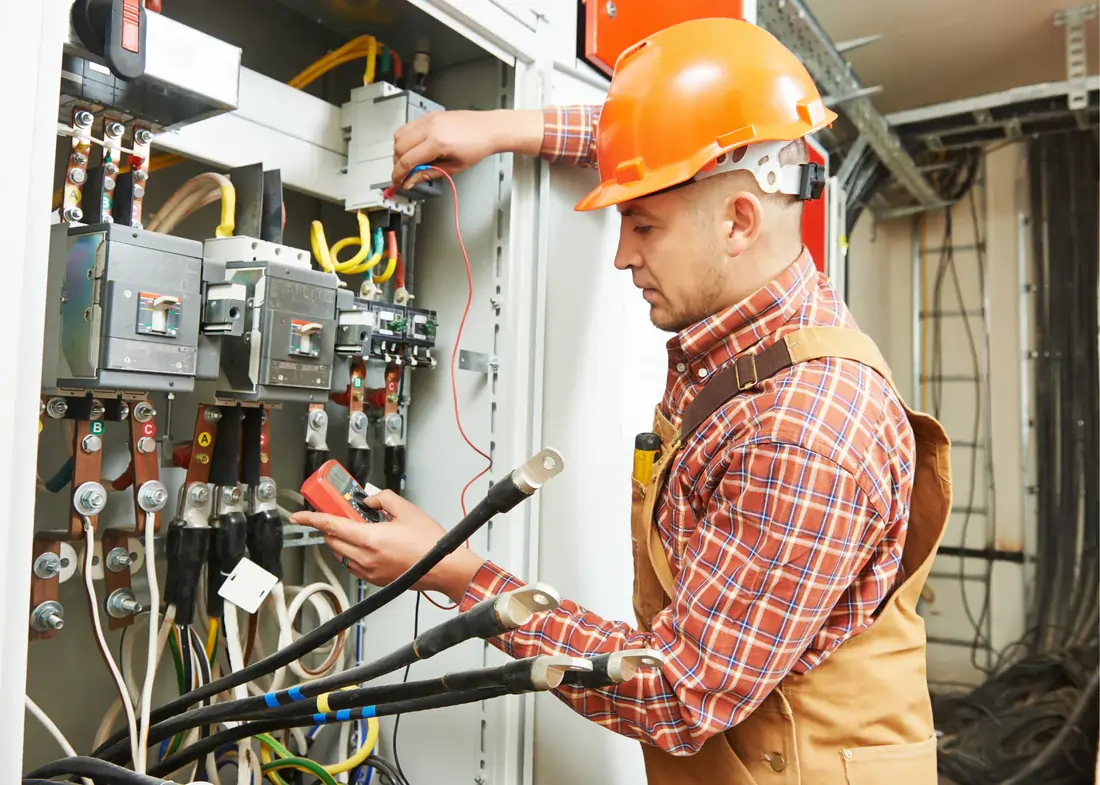
Common Electrical Problems in Older Fort Worth Homes
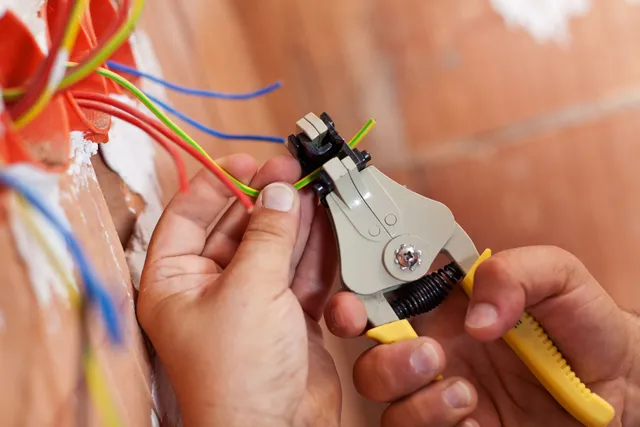
Why a Licensed Electrician is Essential for Home Renovations in Burleson
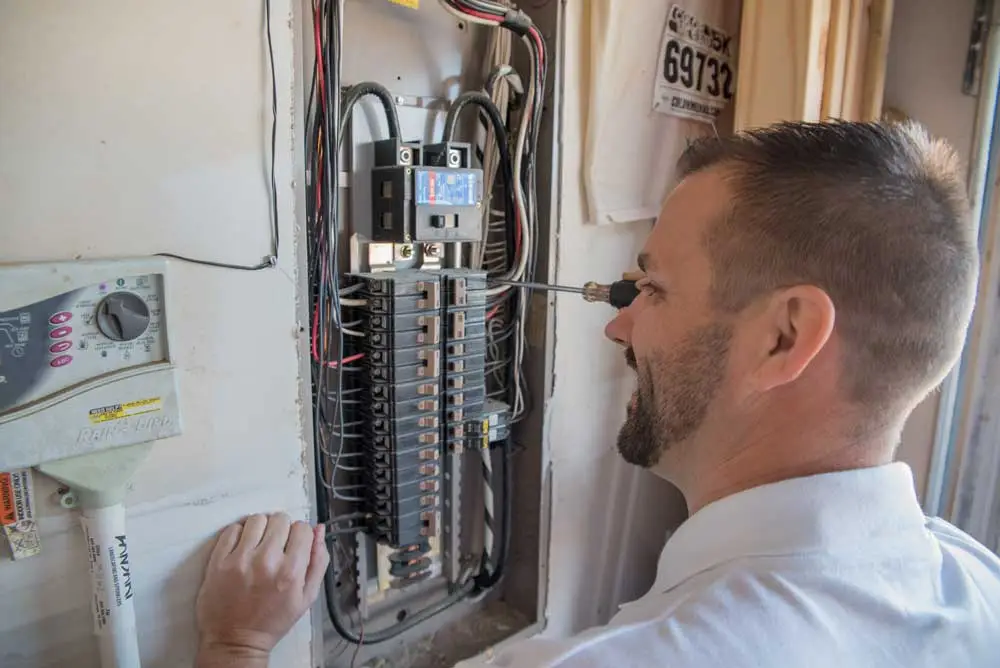
How to Prepare Your Irving Home for an Electrical Inspection
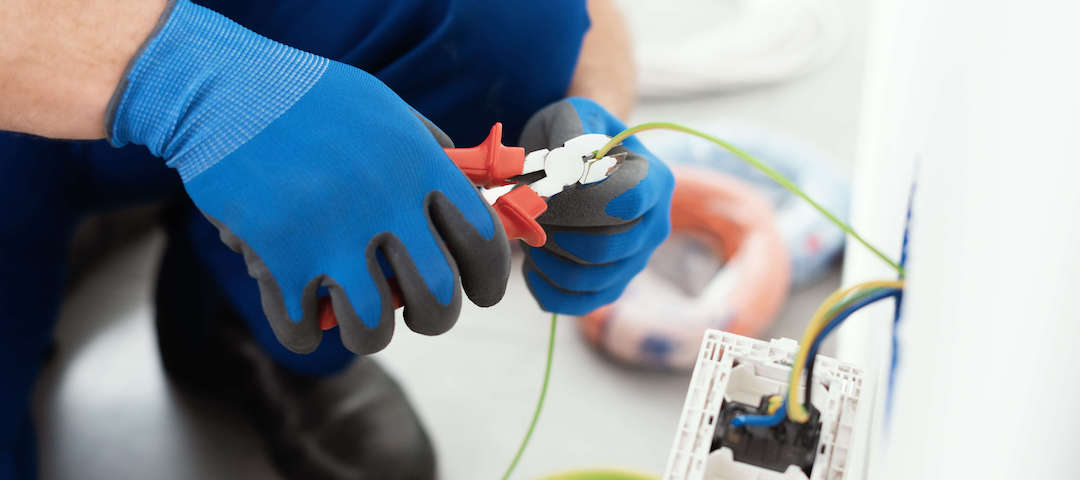
The Importance of Routine Electrical Inspections in Plano
Related Post
October 03 2023
Your HVAC System: 4 Ways To Upgrade It
HVAC systems, including air conditioners and heaters, control the air in your home. Your HVAC system is likely to be efficient if you schedule maintenance (ideally in the spring and fall) and stay up-to-date with heating and air conditioning maintenance. The unit may also be outdated – most last about 15 years – or have […]
August 29 2023
Why do you need Electrical Compliance in HVAC Installations?
HVAC stands for heating, ventilation, and air conditioning. This system helps to take care of the complete air quality of your home and regulate the temperature. It’s also installed in offices or large commercial spaces. Once you have a proper Forth Worth HVAC system installed, you must ensure safety parameters are in place to prevent […]
July 26 2023
Troubleshoot Common HVAC Problems: Keep Your Appliances Fit and Fine
All homes in and around Arlington have at least one HVAC Irving appliance working in their homes, whether heating or cooling. Our HVAC appliances keep us comfortable and cozy during extreme weather conditions, making them significant for alleviation. However, excessive usage and low maintenance can reduce our HVAC appliances’ working efficiency. As the owners, we […]




